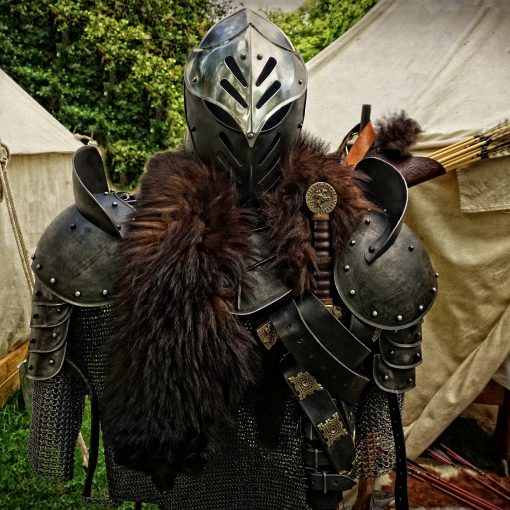One of the problems I have as a player is that I tend to be a little too forceful. Partly because I’ve been doing a podcast for years and partly because it’s just my personality, I tend to be really enthusiastic about my gaming and I want to interject a lot. I am the classic ‘alpha player” in a lot of ways.
That can be a good thing. I tend to chase plot hooks and want to engage NPCs. It also means that sometimes I can be a little too forceful and wind up monopolizing or even closing out a scene when other players aren’t done with it.
Like I did on Saturday.
Saturday’s game session went pretty well, but toward the end of the evening, we were questioning a hostile NPC who had been involved in some violent sabotage against a restaurant that the PCs were investigating. The warforged character and Nassir scared him a little, he grudgingly gave up some information and we handed him over to the watch.
Later that evening, after the game was over, one of the other players contacted me privately on Discord and asked why I’d rushed out of the scene so quickly. As it turned out, she’d had some other questions she’d wanted to ask – some really astute, useful, intelligent questions that hadn’t even occurred to me – and I’d basically just charged through the scene and shut it down. She was very courteous and pleasant about it (more than she needed to be given how much I’d shut her down, albeit without meaning to), but she was a little confused as to why I’d rushed out of the scene and a bit frustrated about not being able to question the NPC as much as she’d have liked.
We talked back and forth a bit and I came away with some important take-aways.
- I’ve known for a while that I can be a little bit of a steamroller at the table, but I hadn’t been thinking of it actively on game nights much, so I need to be more conscious of that. A reminder of these known issues can be good, especially when it’s delivered as kindly as this one was.
- The player who contacted me has a lot of good ideas and I need to make sure she gets into scenes more. If there’s a constructive use for the forceful “alpha gamer” personality, it’s making sure to hand the spotlight around actively. I didn’t do that on Saturday, and the game was worse for it.
- In particular, given both her mindset and skillset away from the table and her character’s background and skill list, I’m thinking we should make the PC of the player who came to me with concerns one of the people who handles interrogations and interviews on the regular. As I said above, she had a whole raft of things she wanted to ask the NPC about that I didn’t even think of.
- I have really nice, mature friends who will have a pleasant and civil conversation about things and give specific, constructive, actionable feedback. I am a lucky gamer.
The reason I bring this exchange up here in the blog at all is that it’s a good example of away-from-table discussion that can make games better. There was no hostility or animosity, just some honest, constructive feedback. The conversation I had with the other player was cordial and there was a bit of humor injected. It wasn’t this big, drama-filled thing.
We spend a lot of time in the RPG advice sphere talking about “adult conversations” and that often has a potential to come off as something like getting an annual performance review at work: hyper-serious, stressful, and uncomfortable to get through. And sometimes, if someone has done something truly awful, those conversations need to happen.
But most of the time, things can go much more like they did on Saturday, with one friend asking another if they’d do something a little differently in the future, the other pledging to do so, and that being that. Approach in kindness and respond in humility. You’re friends, after all.
Photo by Jean-Philippe Delberghe on Unsplash



